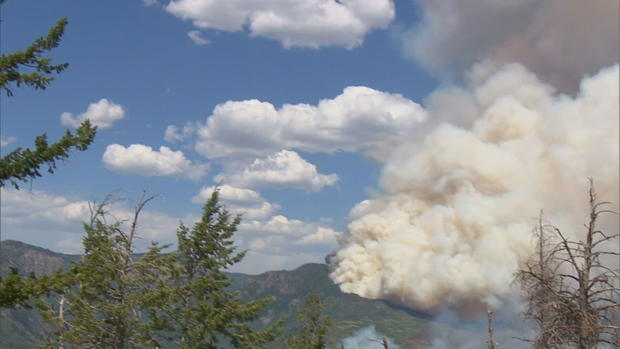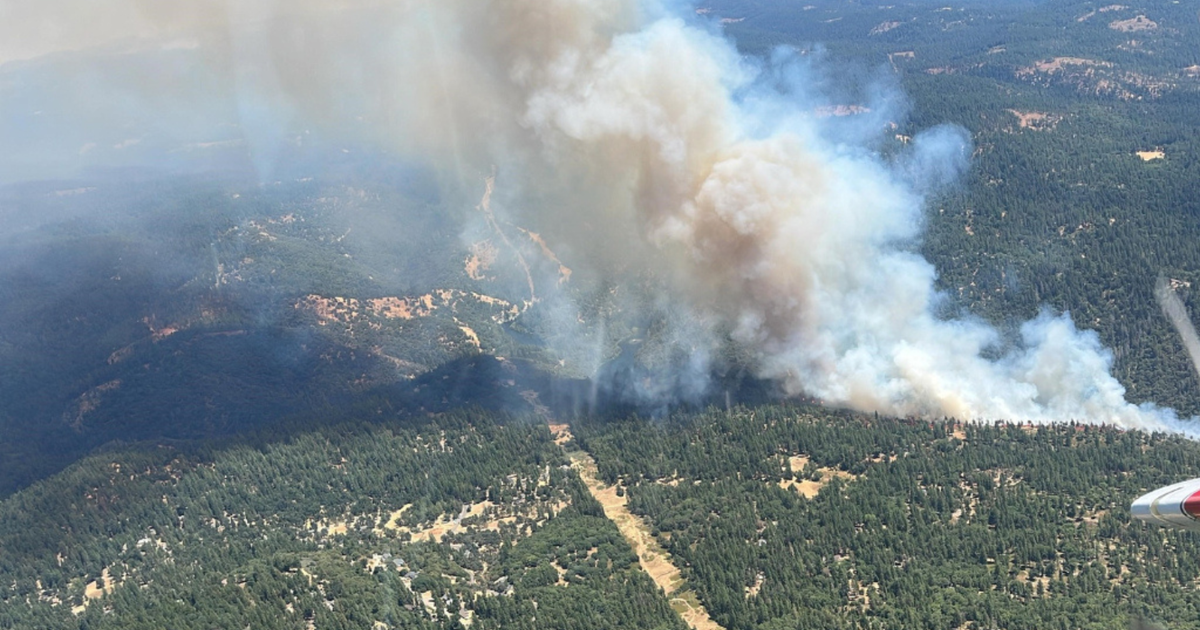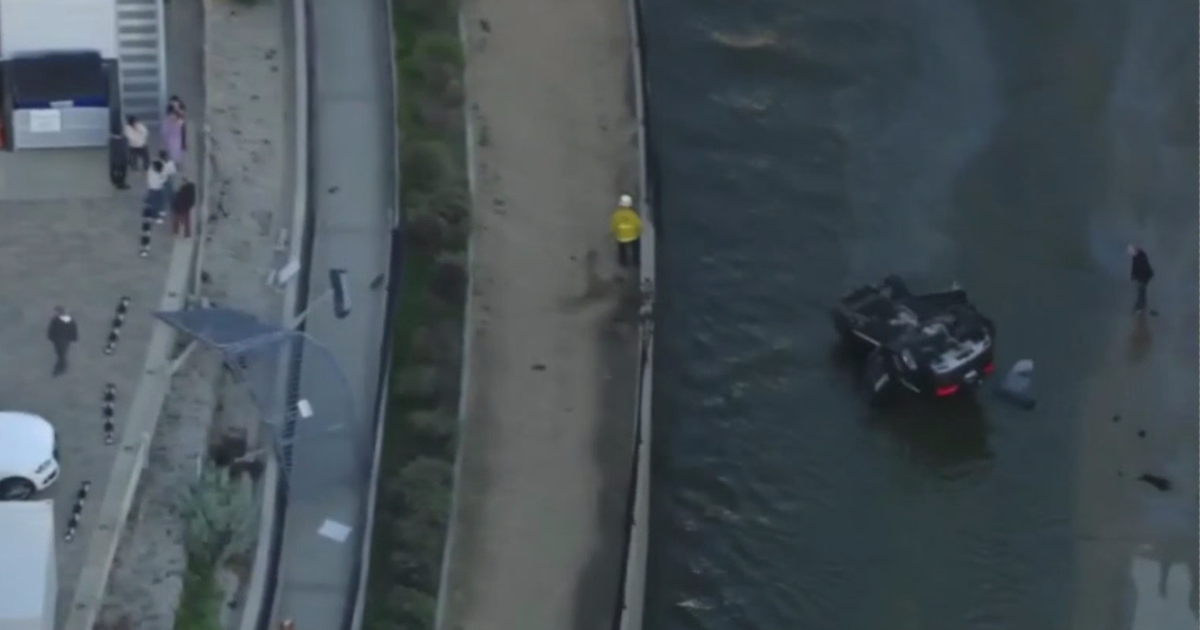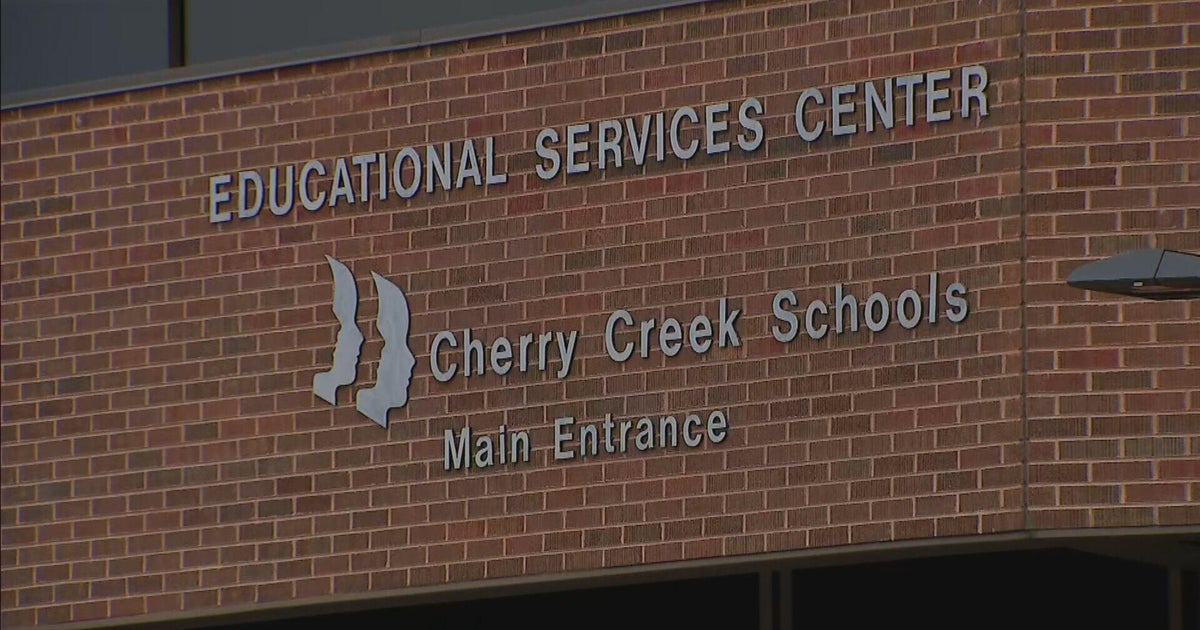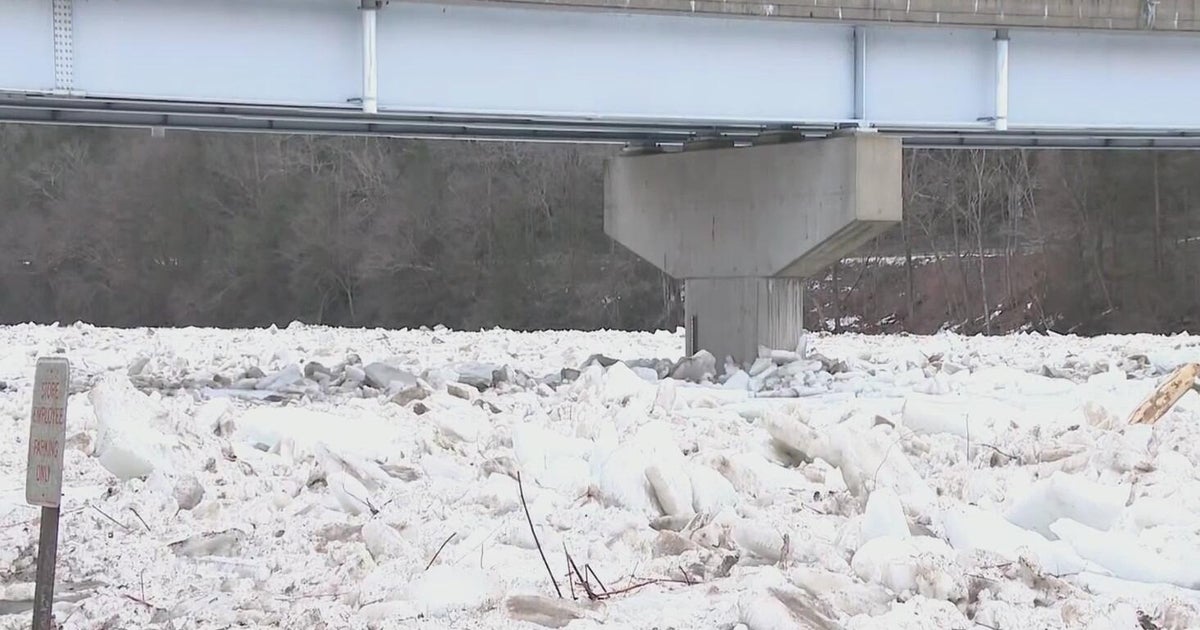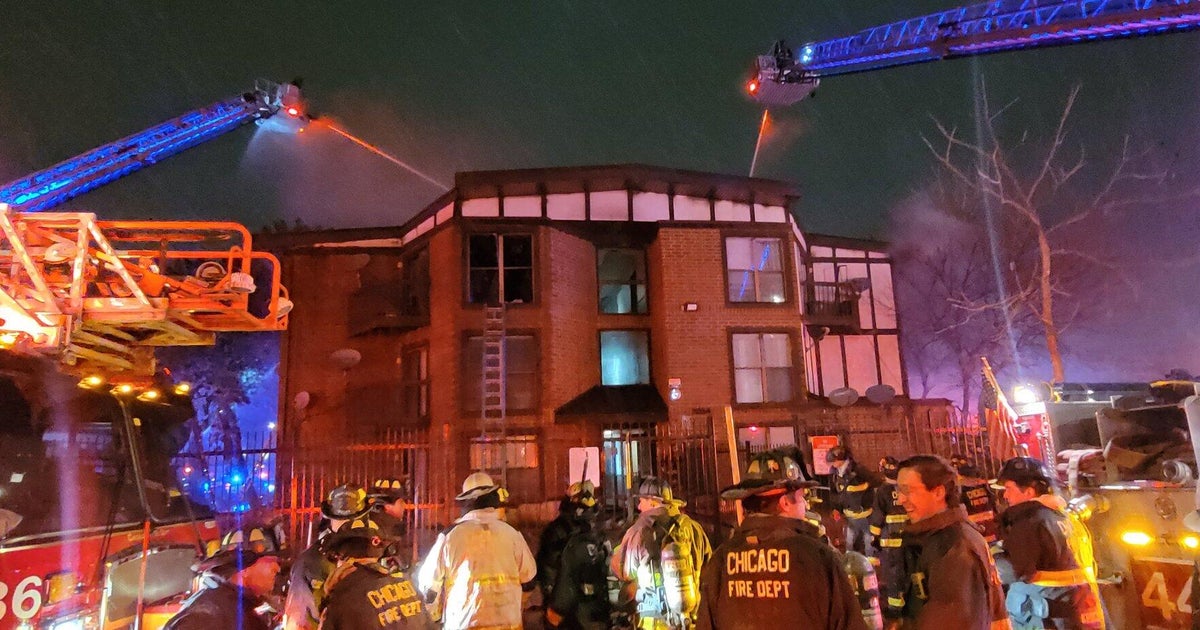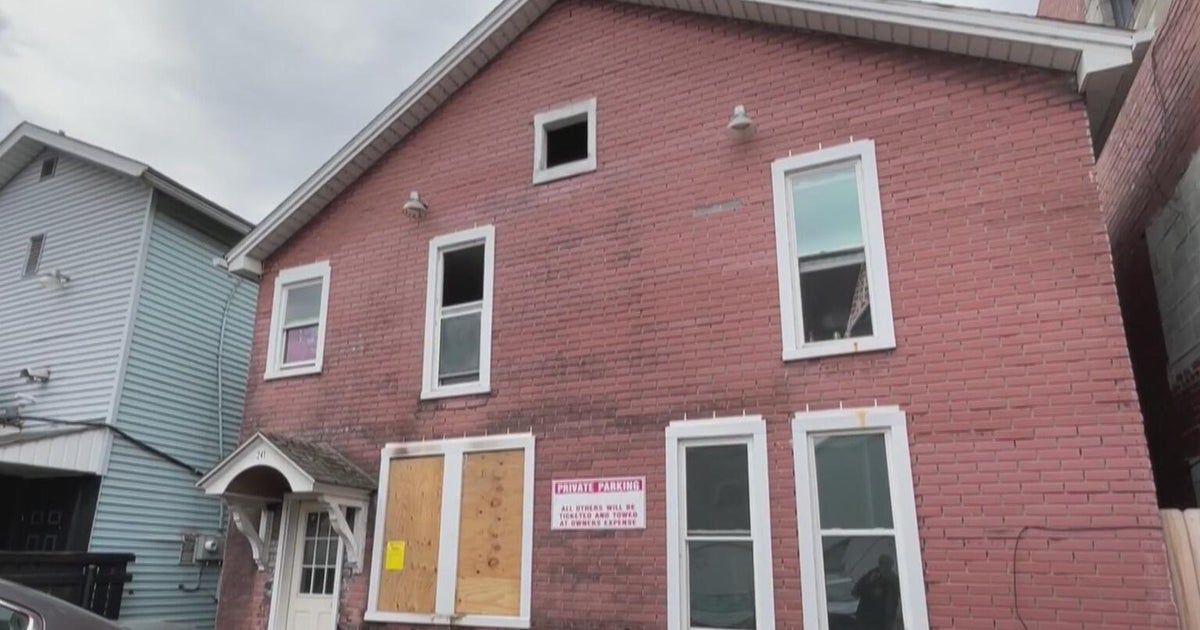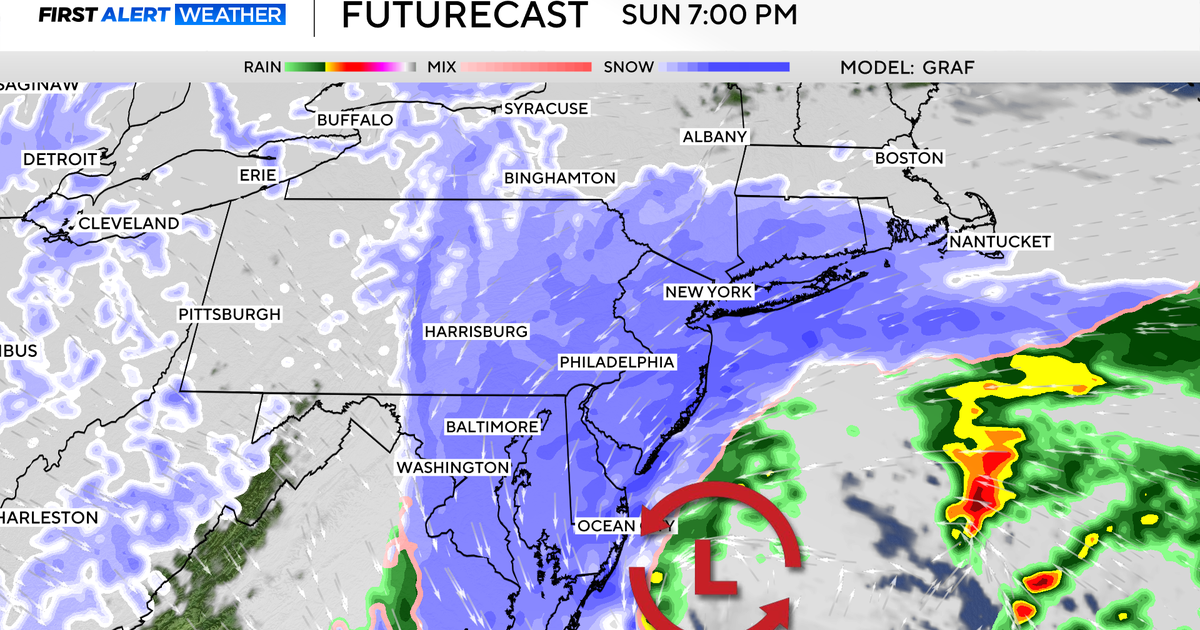Grizzly Creek Fire: Concern Grows For Threat Of Flooding & River Impacts
GLENWOOD SPRINGS, Colo. (CBS4) - The Grizzly Creek Fire reached 22% containment Friday evening. While firefighters have made progress, the long-term impact could last for years.
"There's kind of a moderate term 'near-normal' here that the public is going to have to come to grips with. This is not going to fix itself overnight. We are looking at years of impacts to the area," said Kevin Houck, Chief of Watershed and Flood Protection for the Colorado Water Conservation Board.
With the fire still very active, Houck and his team of water scientists haven't been able to collect a lot of data, but know impacts to the Colorado River and the tributaries that surround it are inevitable.
"Given just the nature of Glenwood Canyon and the steep slopes that surround the area, it's just going to be a given that for the next couple years and potentially longer we're going to be looking at the potential for increased rockfall," said Houck.
The biggest concern is the amount of sediment that can build up in the river and the effect this can have on the water supply for communities down stream.
"When you have a heavy thunderstorm, combined with the slopes that we see in this canyon, it can result in some pretty heavy flows that you might not otherwise see in the absence of the fire," he said. "It's all how fast the rain falls and how long it lasts. So, if we have more a gentle rain that lasts a while versus a very short cloud burst thunderstorm, we'll see different kinds of reactions."
In the immediate future, Houck says homeowners need to be prepared for potential flooding.
"We want to start the community engagement, to let them know what to expect in the years to come, things that can be undertaken in the short term; such as consideration of flood insurance for those that live near creeks that are affected and may not have felt that they had a problem before. We want to make sure that people in the area understand that this is going to be kind of a new normal at least for the next few years."
Houck realizes the term "new normal" has become a bit cliche, but knows from past wildfires, it will be at least two years before any significant regeneration can really begin.
This doesn't mean a long-term closure of the canyon, but he believes people using it for recreation and those living in the area, will have to come to grips with changes on some level.
"I think we're most concerned about the residents that live in the canyon and have property that are affected by the burned watersheds, also the recreationists that go into the canyon. We're going to have to look at things like when rafting trips take place on days when rain is expected, how will we manage that, people just driving through the canyon on days when rain is expected," he said.
Entities at state and local levels are coming together to offer advice and find ways to help watersheds recover even before the damage is done. Houck anticipates a number of municipal water systems will get bogged down, with sediment buildup.
"To the point that often times they have to turn off their collection systems temporarily following rain events. So it works better of there's a backup source that they can switch over to but not all municipalities and water providers have that luxury, so it's something that's gonna have to be looked at very carefully in the coming months."
The city of Glenwood Springs has already reached out to the Colorado Conservation Board for assistance on outreach regarding flood insurance.
"We do manage the national flood insurance program on behalf of the state and that is something we've agreed to help them with. I think that's going to be a very important message going forward. Folks that may not have felt they were ever at a risk of flooding-the circumstances may have changed in some cases now because of this new normal."
If a federal disaster is declared, the state would have the opportunity to work with FEMA on funding to help communities impacted. Houck believes this would be extremely helpful and says it would be up to the Department of Public Safety with the state which would work with FEMA to see if Colorado is eligible for such a declaration.
